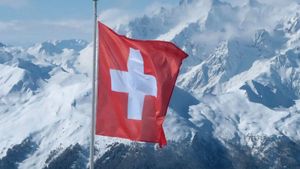The recent Bundestagswahl has shifted the political dynamics in Germany, leading to imperative coalition talks between the CDU and the Greens, two parties often seen as rivals. Following the elections held on February 23, 2025, the CDU emerged as the clear winner, securing approximately 29% of the votes. The Greens, meanwhile, received just over 13%, positioning themselves as potential partners for governance alongside the traditional ally of the CDU, the FDP, which is reportedly teetering close to the electoral threshold with only 4.9% of the vote.
Markus Söder, the chief of the CSU and vocal opponent of any CDU-Greens collaboration, has consistently emphasized his party’s preference for not cooperating with the Greens, marking them as political adversaries. Following the initial election results, though, Söder's tone appeared more cautious, indicating the necessity of collaboration as the political picture solidifies. “We want no cooperation with the Greens,” Söder reiterated post-election, yet he later acknowledged, “if I see the projections, it doesn’t work with the Greens alone.” This admission hints at the complex coalition possibilities being charted as the CDU begins to calculate viable paths forward.
Friedrich Merz, the CDU’s candidate for chancellor, has been vocal about his intentions to negotiate swiftly and effectively to form the next government, stating, “Germany needs stable governance quickly.” He possesses the substantial task of bringing together disparate interests, including negotiating with the potential partners who are both traditional allies and past rivals.
Standing ready for negotiations, the Greens, led by Robert Habeck, expressed their willingness to participate actively. Habeck noted the party’s resilience as they managed to bounce back from previous polling lows, asserting, “We are ready to participate in the government.” His remarks reflect the Greens' readiness to shift roles from their previous standing as part of the opposition and become key players within the future government.
Despite the seemingly aligned interests on various issues, like foreign policy and innovation investments, the CDU’s potential coalition moves remain rife with challenges. Previous state-level alliances, such as Schwarz-Grün (black-green coalitions) established successfully reach across various regions like Hesse and North Rhine-Westphalia. Still, there's doubt on whether the dynamic would hold true at the national level.
The opposition too is restructuring, with Olaf Scholz from the SPD acknowledging the loss as “a bitter result” for his party, eleving the call for introspection within the SPD. Alongside, other oppositional parties such as the Left party and AfD voiced their sentiments about the shifting political winds, with AfD’s Alice Weidel proclaiming, “We have never been stronger,” which chimes with the economic uncertainties prompting calls for consistently firm governance.
One point of contention arises over the potential involvement of FDP, who after the Ampel coalition with the SPD may not be eager to align with the Greens, according to Wolfgang Kubicki’s statements post-results. He remarked, “I can exclude Jamaica for myself personally,” indicating early signals of potential ruptures within coalition negotiations.
Crucially, the direction party leaders take and how they convey their willingness to negotiate could dictate the tone of the next legislative session. The possibilities range from the classic coalitions like Jamaica (CDU, Greens, FDP) to the more cautionary formats like Kenya (CDU, SPD, Greens) or the prospect of even more unexpected pairings if traditional alliances falter.
Some analysts suggest the outcome could lead to significant political reconfigurations, with the potential for party platforms and coalitions to evolve or retract based on public sentiment and electoral realities observed during the elections. Germany’s business community has echoed similar sentiments for urgency, with representatives highlighting the stabilization of governance as imperative, allowing for decisiveness on pressing economic matters.
Overall, the coming days will prove pivotal, as the CDU, the Greens, and their respective allies gauge public sentiments and negotiate to align on broader policies, thereby shaping the future of German politics. Each party's maneuvering will substantively determine not only the immediate governance options but also the potential ideological steps the nation will take moving forward, illustrating the fluidity of coalition politics.
With tensions and uncertainties ripe among possible coalitions, it appears the political chess game has just begun, and the stakes for Germany are clear: will they move toward divisive opposition or collaborative governance? This decision could very well dictate the stability and direction of the country for years to come.



